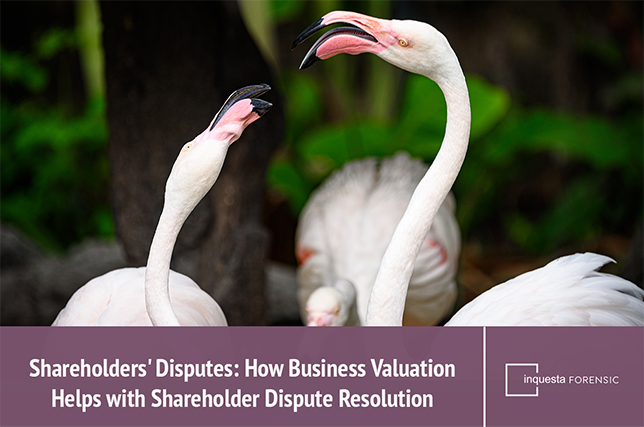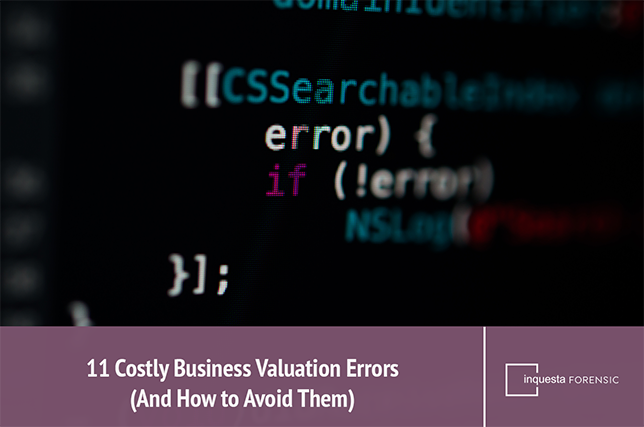The journey of conducting the valuation of a business for sale will bring you through financial intricacies, market dynamics, regulatory compliance, and much more. As prospective sellers or investors in the dynamic UK business landscape, the question of what actually goes into this process looms large.
While the steps that go into a company valuation for sale purposes will mostly differ from business to business and industry to industry, there are some common steps and factors that will often emerge. A core part of valuing a business is critically looking at every aspect from top to bottom, but where do you even start? Read on to find out more.
How do you Value a Business for Sale in the UK?
Valuation of a business for sale is a complex and high-stakes process. It involves a need to efficiently establish a motive, choose the ideal method for you, and look to always adhere to UK regulations. These steps are vital in answering the important question, “how do you value a business for sale in the UK?”
Assessing the worth of a business before sale is a vital step in the buying/selling process. But what other factors can influence this valuation? In the often dynamic UK business market, this question carries significant importance as it will have a large effect on the ultimate success of a sale, as well as the expected return on investment for the parties involved.
Company valuation for sale purposes is an intricate process. It involves thorough examinations of factors like financials, industry trends, and intangible assets, all while ensuring complete compliance with UK regulations. Comparative analyses and assessments of growth potential will also further refine a valuation.
Additionally, seeking expert guidance and conducting rigorous due diligence are essential steps to answer the question, ‘how do you value a business for sale in the UK?’ Ultimately, this process is a multifaceted one. It will require careful and comprehensive consideration of a number of key factors in order for an accurate and efficient valuation.
While the process will likely be different for everybody, common steps include the following:
Step One: Collate Data
First and foremost, a step that must not be skipped, is the act of collecting and analysing the business’s financial statements.
These vital documents will provide a starting point and an excellent foundation to assess the company’s financial performance and allow you to continue with the process unhindered.
Step Two: Consider the Market
Consider the Market: Particularly important for companies with a global reach outside of just the United Kingdom, it is vital that you understand both the industry and market conditions specific to the UK.
This includes looking at economic trends, the impact subject’s like Brexit could have on a firm’s valuation, and more.
Step Three: Determine the Best Method
There are generally considered to be four common methods of business valuation. These are the four methods most often used during the process, either because they are particularly effective for specific types of business, or because they can be particularly simple and effective to execute.
The common methods utilised include:
- Asset Valuation
- Earnings Method
- Market Value Approach
- Future Earnings Methodology
Step Four: Assess Intangible Assets
When valuing a business for sale, it’s not enough to solely focus on the tangible assets (real estate, inventory, equipment, etc.). You must also assess the intangible assets held by the business. These assets are elements of the business that may not contain a physical presence, but are likely to have some impact on the company value.
For example, intellectual property will include patents, trademarks, and copyrights. All of these can help generate income, therefore making the firm more valuable. Likewise, intangible assets like brand recognition and customer relationships will have a similar effect. They all contribute to the reputation and revenue generated by the business, so therefore must be taken into account.
Step Five: Ensure Compliance
One of the less glamorous, but one of the more important steps when conducting the valuation of a business for sale is the act of ensuring compliance with UK regulations.
To meet these regulations, you must conduct a thorough review of all laws, licences, permits, and any other possible obligations. Overlooking these laws and regulations can have severe consequences, possibly even completely derailing a proposed sale. Prospective buyers will also be far more likely to commit if a business has a clean track record when it comes to abiding by laws and regulations.
This step in the process should be viewed as a proactive measure to protect all parties and to make the road towards a successful sale smoother.
Given the complexities of the business valuation process, it’s often advised that you contact a business valuation expert as early in as possible.

Factors That can Affect a Company Valuation for Sale
There are a variety of common factors that can have an effect should you wish to conduct a company valuation for sale purposes. These factors, including financial performance, growth potential, and market competition, will likely vary depending on the industry, location, and specific situation of the business in question.
Despite the variation from company to company, some common factors that can impact the valuation of a business for sale include:
- Company Performance: Both historical and projected financial performance will have a key role to play in the ultimate valuation of a business. This will include considerations regarding revenue, profit margins, cash flow, etc.
- Market Factors: There are a number of economic and industry factors that must be taken into account. For example, how competitive a business’s field is will influence its value.
- Intangible Assets: As outlined above, intangible assets can have a significant impact on valuation.
- Company Location: The physical location of a business, as well as its facilities, can affect its value. This is especially true in regions with particularly high or particularly low property prices.
- Growth Potential: A business’s potential to grow, including any expansion prospects and strategies in place will naturally affect its attractiveness for potential buyers, and in turn will affect its value.
- Customer Base: Does the business have a pre-existing, stable, diverse, and sizeable customer base? This consistency can be a crucial factor.
- Management Team: A strong, experienced, and settled management team and staff can make a business more settled should a takeover or purchase happen, potentially increasing its value as both a short-term and long-term prospect
- Existing Debts: Any outstanding debts/liabilities a company has can limit the net proceeds generated form a sale, affecting the valuation.
- Economic Climate: The broader economic climate will have a marked impact on a company’s valuation. This will include the state of interest rates, inflation, etc. at the time of the planned sale.
Above are just a handful of the factors that could affect a company valuation for sale. It’s important that you aim to consider as many of the relevant factors as possible, as they will all combine together to collectively contribute to the worth of your business.
Valuation of a Business for Sale: Key Considerations
During the many intricate and highly involved steps when valuing a business for sale, it can be easy to overlook or forget a number of crucial details. From existing contracts and agreements to tax implications and third-party costs, numerous, often significant factors, require careful consideration.
When conducting the valuation of a business for sale, the complexity of the process can often lead to the omission of key considerations, including tax implications. Understanding the potential tax consequences of a sale, such as capital gains tax and available exemptions is a critical step towards sound financial planning during the sale process. Neglecting this aspect can adversely affect the financial outcome of the sale.
It is also important to assess the presence of non-compete agreements. These agreements may form part of a contract of a key employee or partner, and are intended to prevent them from launching a competing business in the same industry.
Additionally, two other often-overlooked factors when valuing a business for a sale are customer transition planning and third-party costs. Considering and planning for how the firm’s core customer base will transition following a sale, along with accounting for associated third-party expenses, can significantly affect the net proceeds generated from a sale.
Other factors that require attention include employee and supplier contracts, leaves agreements, environmental and healthy & safety compliance, insurance coverage, and employee retention plans.
In general, it’s essential to remain mindful of these various factors throughout the sale process. Staying informed and prepared for any eventuality in keeping these often-overlooked aspects in mind is crucial for the successful valuation of a business for sale. Doing so will not only protect your interests, but ensure as smooth a transition as possible.
Unlock the Expertise of a Forensic Accountant Today
As detailed above, valuing your business for sale should not be seen as simply a financial endeavour with an obsession with numbers and data; it’s a complex process, requiring meticulous attention to detail. This care will, more often than not, ultimately make the difference between a successful sale and transition, and an opportunity missed.
As prospective sellers and investors in the highly competitive and dynamic UK business market, understanding exactly what goes into the valuation process is paramount.
In this blog we have outlined what goes into the valuation of a business for sale, factors to consider, things to remember, and much more. However, beyond that, it’s crucial that you do not see company valuation as a solo task. A forensic accountant on your side can ensure that absolutely no crucial detail is overlooked, that every regulation is adhered to, no stone is left unturned, and that the valuation itself is completed as accurately and efficiently as possible.
Forensic accountants play a pivotal role in making the journey towards an eventual sale simpler, while being more successful and most of all, less stressful.
The guidance of our dedicated team of experienced will offer not just clarity and guidance, but also the assurances that every detail will be accounted for. With the Inquesta Forensic Accounting team behind you, the path will become much clearer.
Find out more about what the team at Inquesta Forensic Accounting can do for you by contacting us today.
- Your Partner’s Been Convicted: Can They Take Your House? What Section 10a POCA Means For You
- The Essential Role of Forensic Accounting in High Net Worth Divorce
- How to Value a Startup Business: A Guide for UK Entrepreneurs
- Pig Butchering Scams: Guide to Crypto Romance Fraud
- Shareholders’ Disputes: How Business Valuation Helps with Shareholder Dispute Resolution










